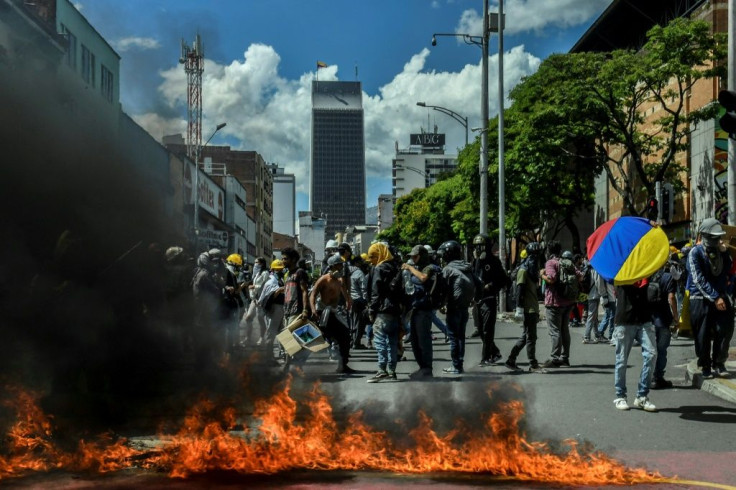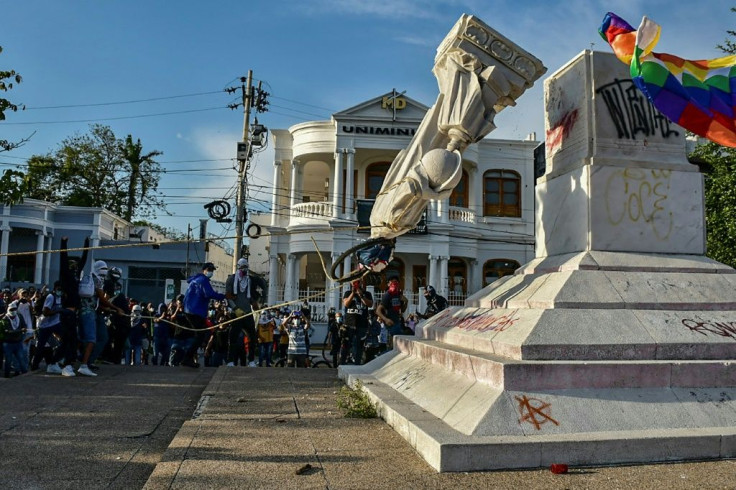Fresh Clashes In Colombia On Protest Movement Anniversary
Anti-government protesters and police traded blows on Monday in demonstrations across Colombia that marked two months of unrest in which more than 60 people have died.
Colombia has been rocked by protests since April, following opposition to a proposed tax hike that morphed into a mass movement against the right-wing administration of President Ivan Duque.
The demonstrators demand an end to police repression and more supportive public policies to alleviate the economic impact of the Covid-19 pandemic, which has plunged more than 40 percent of the country's 50 million inhabitants into poverty.

Riot police were deployed "on 20 occasions in various cities" Monday, the general director of the Police, General Jorge Vargas, reported in an audio recording sent to the media.
Demonstrators attacked police installations in the cities of Medellin and Pereira, with protestors demolishing a statue of the country's namesake, Christopher Columbus, in Barranquilla in the north. Riot police responded with water cannon and tear gas.
A dozen public transportation vehicles were also "vandalized", Vargas said.

In the capital Bogata, dozens drew silhouettes of civilians killed by the country's military in the over fifty-year-long conflict between the state and the FARC guerrilla -- violence that has resurged in recent years despite a peace agreement signed in 2016.
More than 60 people have died in the protests, according to the country's Ombudsman.
Human Rights Watch has accused law enforcement of committing "egregious abuses", saying police are implicated in at least 20 homicides. The United States, the European Union and the UN have condemned police abuses.
The government claims that illegal groups involved in drug trafficking and the National Liberation Army (ELN) -- Colombia's last recognized guerrilla group -- have infiltrated the protest movement in a bid to sow chaos.
A major group representing the protesters said on June 16 it would suspend demonstrations, promising to "continue our struggle in other settings such as art and concerts".
More hardline factions in the movement have pledged to carry on.
© Copyright AFP 2024. All rights reserved.





















